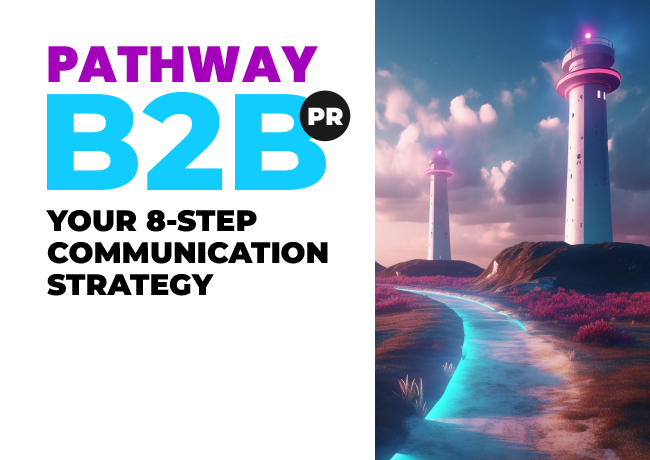
How to build brand presence in your target media: Why PR agencies are essential
Building a strong brand presence is essential for success in 2024/25. Modern Public Relations (PR) has evolved into a multifaceted discipline that embraces multiple media channels to build brand awareness and preference. As expert communicators, PR professionals can create and maintain a powerful brand presence more effectively than many in-house marketing teams.
In brief: advantages of using a PR agency
- You can expect more and better quality placements and coverage in preferred media
- We’ve got our finger on the media pulse, we know the trending topics and will pitch the story that will work for your target publications
- We’re your PR and marketing wing-person, we’ll provide a trustworthy and objective perspective
- You can benefit from our ‘little black books’. We’ve spent years building relationships and trust with our media contacts to everyone’s benefit.
The power of PR in building comprehensive brand presence
Access to your audience is paramount for all businesses. It’s where you can showcase your offerings and demonstrate your value. However, reaching your target audience can be challenging, with many organisations struggling to engage their prospects effectively. This is where modern PR shines, doing the heavy lifting across multiple fronts:
- Traditional media (print, broadcast, online publications)
- Digital PR strategies
- Social media platforms
- Content marketing initiatives
- Influencer partnerships
- Thought leadership opportunities
- SEO and online reputation management
While media publications dealing with industry challenges and solutions remain crucial for building brand presence, today’s interconnected world demands a strong presence across all relevant channels for maximum impact.
Navigating these diverse media channels effectively is no easy feat. It requires knowing whom to contact, how to pitch, understanding current trends, and creating content that resonates on each platform. This is why engaging a PR agency is crucial for not only increasing PR coverage but also building a comprehensive brand presence.
More and better coverage
Consider this: A niche in-house marketing team typically achieves 3-4 pieces of coverage, while a great PR agency can amplify that to 25+ pieces within 12 months. Moreover, PR agencies manage a cohesive strategy across various media channels and platforms, ensuring your brand message reaches your target audience wherever they are.
Share of voice matters – see what one company achieved with PR.
How PR agencies make the difference
1We’ve got our finger on the media pulse:
PR agencies specialise in understanding both clients and media landscapes. Daily monitoring of news channels, trending topics, and media styles is our bread and butter. We’re trained to grasp the approach, style, and even potential political leanings of media publications, allowing us to pitch content that fits seamlessly.
When working with clients, we get under the skin of the business, understanding:
- Proposed roadmaps
- Investment areas
- Current R&D
- Purpose and business objectives
This comprehensive understanding allows us to provide consultative advice on communicating objectives effectively to customers and prospects via media.
2We’re your PR and marketing wing-person
PR acts as a conduit, connecting you with appropriate editors and advising on the best approach for your story. We provide an objective perspective based on years of experience and industry knowledge. Our people skills, fresh ideas, and ability to cut through noise help uncover true stories.
We’re also not afraid to be honest. If your story lacks newsworthiness or originality, we’ll tell you. This selective approach prevents wasted budget on ineffective activities and maintains credibility with journalists.
3We’re trusted by the media
PR agencies have spent decades building trust with journalists through hard work and meeting their needs. Our ‘little black books’ are the result of years of relationship building and providing insightful, newsworthy content.
These relationships ensure that when we reach out, journalists respond. It’s a mutually beneficial arrangement – when editors need expert input or face last-minute changes, they turn to trusted PR contacts, creating opportunities for our clients.
The evolving landscape of PR
Modern PR goes beyond traditional media relations. PR agencies now leverage their expertise across various platforms to create a cohesive and impactful brand presence:
- Integrated approach: Understanding how different channels interact for maximum impact.
- Adaptability: Quickly adapting to new platforms and trends.
- Storytelling expertise: Crafting compelling narratives that resonate across media and audiences.
- Relationship management: Building connections with diverse stakeholders.
- Data-driven strategies: Using analytics to refine approaches and demonstrate ROI.
- Crisis management across platforms: Handling rapidly spreading issues holistically.
This multi-channel approach creates an amplification effect. A well-placed article can be repurposed into social media content, form the basis for thought leadership opportunities, and improve search engine rankings.
Additional PR agency benefits
- Content creation: Years of experience in writing compelling copy that meets editorial standards.
- Crisis management: Specialised expertise in navigating challenging situations and acting as a buffer between organisations and the press.
- Success evaluation: Analysing coverage quality, targeting, and impact to inform future strategies and improve ROI.
TL;DR
While B2B organisations could attempt media placements themselves, partnering with a PR agency offers significant advantages. Modern B2B Tech PR goes beyond traditional media relations, building brand presence across all channels.
PR agencies leverage their expertise, relationships, and multi-channel strategies to create a comprehensive and impactful brand presence more effectively than many in-house teams. For tech B2B PR support that navigates this evolving landscape, drop us a line.

Your 8-Step Communication Strategy Guide
A comprehensive guide to delivering your business goals using intelligent and relevant messaging.
Our insights
Subscribe to our updates
Stay up to date with the latest insights, case studies and PR guides.

